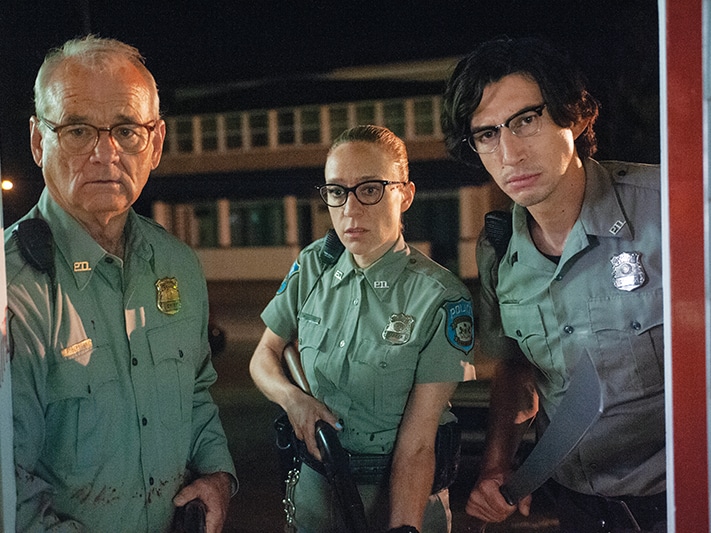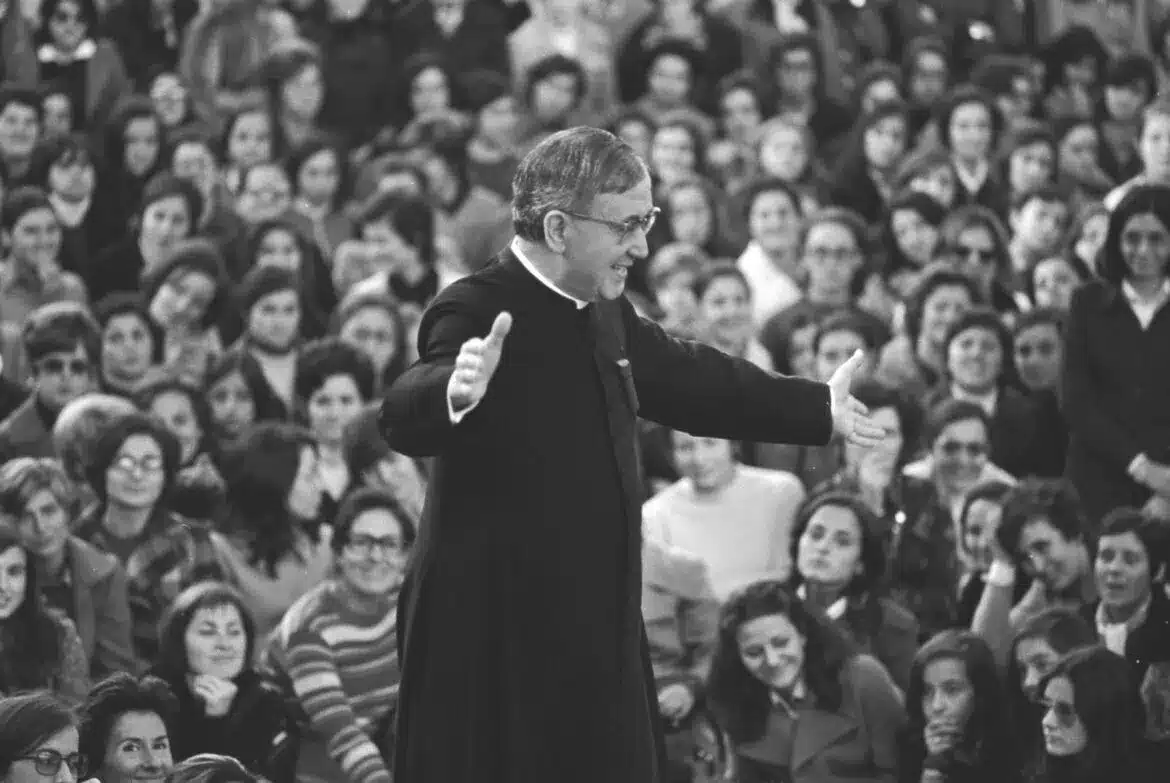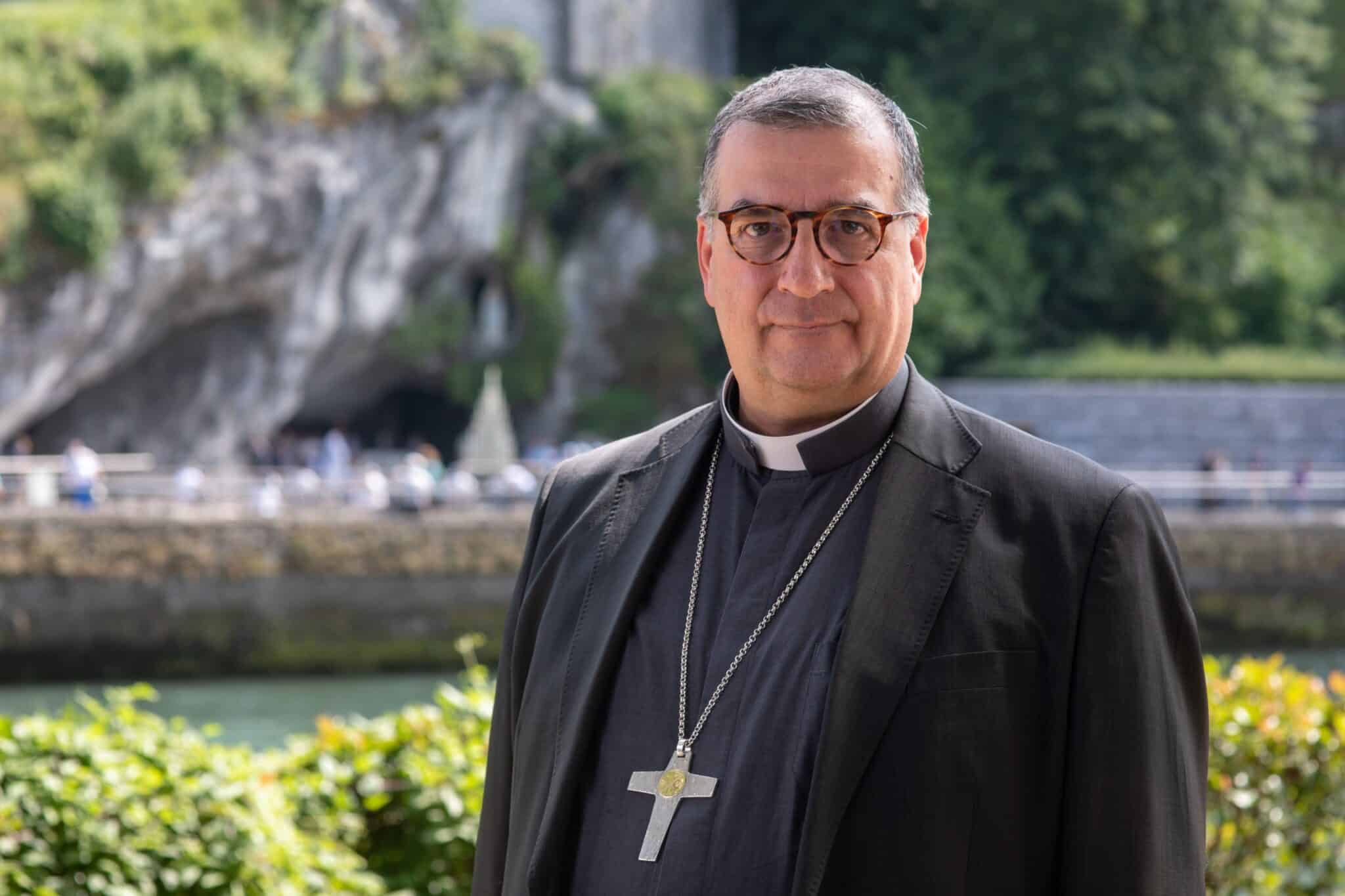The Dead Don’t Die
Writer-director Jim Jarmusch’s latest film about a zombie apocalypse in small-town middle America premiered at the Cannes Film Festival, where I served on the ecumenical jury last May. Although much applauded, the droll, sociopolitical comedy did not win any prizes.
When cell phones and watches stop working and someone steals the chicken of Farmer Frank (Steve Buscemi), Police Chief Cliff Robertson (Bill Murray) and Officer Ronnie Peterson (Adam Driver) check things out. Back at the station, they connect with Officer Mindy Morrison (Chloë Sevigny). The two younger officers leave Robertson alone with the corpse of a drunk for the night until the new undertaker with a Scottish accent, Zelda Winston (Tilda Swinton), can collect her.
Meanwhile, at the gas station, owner Bobby Wiggins (Caleb Landry Jones) sells old comic books and memorabilia from the store and watches television newscaster Posie Juarez (Rosie Perez) offer grim commentary on the situation. After two women are killed at a diner, Officer Peterson predicts, “This is going to end badly, ” and blames their deaths on zombies.
Hermit Bob (Tom Waits) watches through binoculars as zombies slowly try to consume products they enjoyed in life as well as any living people they capture. His choice to be a hermit seems to be a saving grace. Or maybe he is a trustworthy narrator telling us what we already know: Destroy the earth and it will destroy you.
Although many critics think the film is derivative of Shaun of the Dead and other zombie movies, I found the film’s absurd, self-conscious premise very funny and its ecological perspective timely. Adam Driver delivers deadpan dialogue perfectly, but Swinton steals the show. It’s as if Jarmusch called all of his friends together to be a part of an ensemble cast and then made the film just for fun.
Not yet rated, R ⢠Gore, violence, language.
Once Upon a Time in Hollywood
It’s 1969. The career of actor Rick Dalton (Leonardo DiCaprio) is on the decline because of his drinking. His longtime stunt double, driver, and good friend, Cliff Booth (Brad Pitt), passes his time on the set of The Green Hornet and gets into a fight with martial arts star Bruce Lee (Mike Moh). Dalton gets small parts here and there but performs well in a new series called Lancer.
This gets him an offer to go to Italy to act in spaghetti Westerns. Thinking his career is over, Dalton spends six months in Italy with Booth. Dalton marries an Italian beauty and brings her home to California.
While Booth has a lethal reputation and lives in a dilapidated trailer next to a drive-in theater in Van Nuys, Dalton lives in a very nice home in Benedict Canyon. His new neighbors are director Roman Polanski and his pregnant wife, Sharon Tate (Margot Robbie).
One day, Booth gives a flirtatious young woman a ride to the old Spahn Ranch where Western films and television shows were filmed years earlier. Booth realizes she is part of the Manson Family cult and that Manson’s crew uses the place to hide out after stalking and killing people.
Once Upon a Time in Hollywood is timely: This month marks the 50th anniversary of the murder of Sharon Tate and three others by members of the Manson Family. Director Quentin Tarantino’s movie is a fictional reimagining of what might have happened if television heroes, or the actors who played them, had intervened to help their neighbors that fateful night.
The film reflects the deep influence of television on Tarantino from his earliest years. Almost the entire film, except for the last 15 minutes, is a prologue for the graphic slaughter at the end. It is vintage Tarantino, an ode to television’s past with an impressive cast. Only this time, tragically, the plot is based on true events.
Not yet rated, R ⢠Intense violence, language.
Late Night
When the ratings for late-night host Katherine Newbury (Emma Thompson) take a dive after almost 30 years on the air, her network boss threatens to replace her. Katherine gets involved with her all-male writing team and brings in wannabe writer and chemical plant worker Molly Patel (Mindy Kaling) as a “diversity hire. ” With this change, Katherine hopes to keep her job. She demands that the team write better comedy, but she resists taking Molly’s honest and earnest input into consideration.
Much is revealed about Katherine’s marriage to a divorced older man, Walter (John Lithgow), and their decision not to have children but to put all of their efforts into making her program, Late Night, excellent.
I enjoyed the film except for the one tasteless joke about abortion. I think the film is a perfect example of postmodernism in television, when the content value of anything important is reduced to nothing. Thompson is brilliant as the host whose tenuous link to any meaning in life is her relationship with her husband. When a revelation threatens their bond along with the thought of losing her show Katherine changes and grows as a person.
I would not hold Katherine up as a model for young people who want to be on television, however. She personifies the banality and emptiness of too much entertainment in any culture.
A-3, R ⢠Language and sexual references. ansparent;”>








